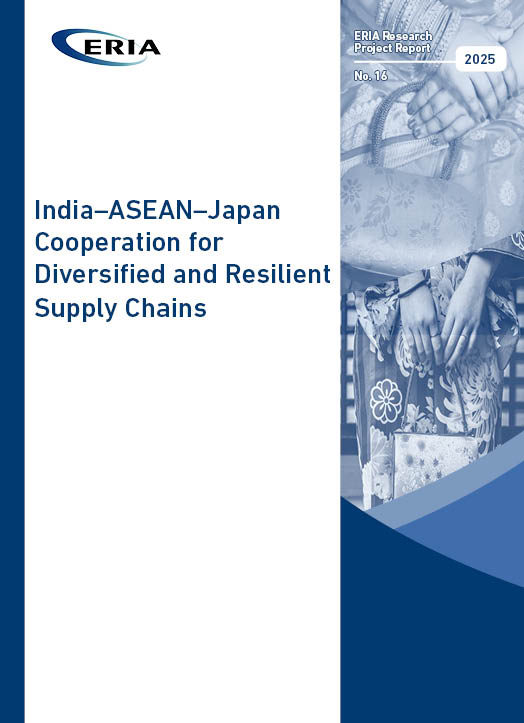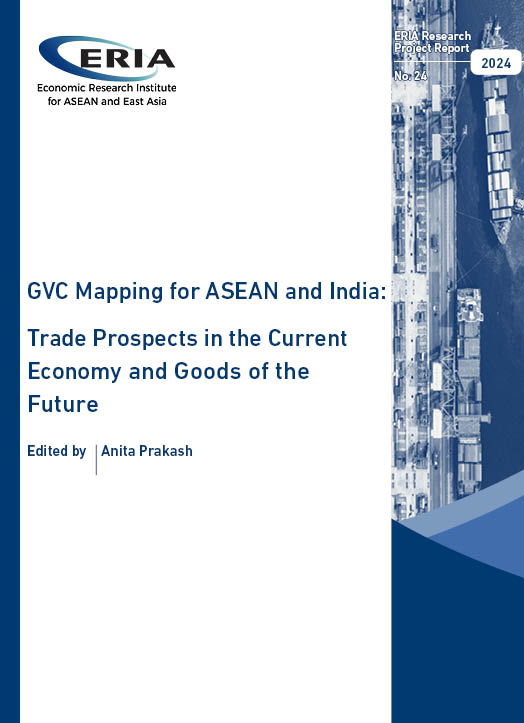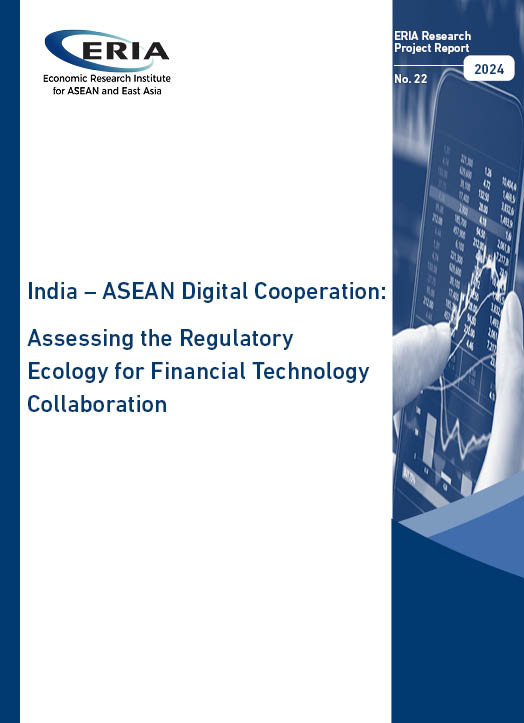India–ASEAN–Japan Cooperation for Diversified and Resilient Supply Chains

Date:
21 August 2025Category:
Connectivity, ASEAN, Industry and Manufacturing, Investment, TradeType:
Research Project ReportsTags:
ASEAN, India, Japan, Supply Chains, Technology, Investment, Policy Dialogue, GVCPrint Article:
The Economic Research Institute for ASEAN and East Asia (ERIA), the Confederation of Indian Industry (CII), and the Institute for Studies in Industrial Development (ISID) established the India–Japan Platform for Supply Chains and Investments in 2024, with ASEAN and Australia as key partners. This study fulfils the platform’s knowledge agenda by advancing technology co-operation, investment facilitation, and policy dialogue, while engaging businesses and policymakers through dissemination activities across India, Japan, ASEAN, and Australia.
The study responds to the 2023 Group of Twenty (G20) Leaders’ Declaration and the Group of Seven (G7) Leaders’ Statement, both of which highlighted the need for resilient, diversified, trustworthy, and transparent supply chains across developed and developing economies. Under India’s G20 Presidency, leaders endorsed a framework for strengthening critical global value chains (GVCs) and underscored the role of the Global South in shaping new supply chains for goods and the digital economy. The G7 Hiroshima Communique similarly emphasised engagement with emerging Asian economies, including ASEAN and India, as central actors in a rules-based, fair, and transparent trading system.
This study positions India–Japan co-operation with ASEAN and Australia as a cornerstone of regional manufacturing and critical mineral supply chains, linking these dynamics to broader issues of economic security. It provides a practical reference for businesses, policymakers, and academics seeking to understand GVC structures, distribution, and competitiveness in the Indo-Pacific region, as well as the contestation between established and emerging GVCs. Using trade, investment, and integration data, it examines current scenarios and infrastructure needs while identifying policy deficits in the global trading regime, including uncertainties arising from the United States and evolving governance frameworks.
Finally, the study reviews the deepening India–Japan strategic partnership, noting its unrealised economic potential, and highlights pathways to strengthen supply chain resilience through co-operation with ASEAN and Australia. These frameworks are presented as the way forward to advance diversified, resilient, and secure supply chains in the Indo-Pacific.




